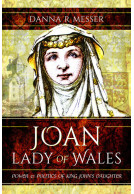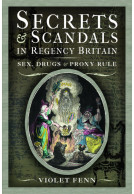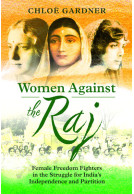Elizabeth Heyrick: The Making of an Anti-Slavery Campaigner (Hardback)
Imprint: Pen & Sword History
Pages: 256
Illustrations: 32 mono illustrations
ISBN: 9781399068383
Published: 7th June 2024
(click here for international delivery rates)
Order within the next 10 hours, 41 minutes to get your order processed the next working day!
Need a currency converter? Check XE.com for live rates
| Other formats available | Price |
|---|---|
| Elizabeth Heyrick: The Making… ePub (17.9 MB) Add to Basket | £9.98 |
Elizabeth Heyrick fought fiercely for the rights of oppressed people. After a disastrous marriage, she became a prolific pamphleteer, a Quaker and one of the most outspoken anti-slavery campaigners of her time. Despite renewed contemporary interest in slavery, and in the stories of those who opposed it, female abolitionists are still much less well known than their male counterparts. Yet they were often more radical and more daring. Heyrick defied male authority and she led others in challenging William Wilberforce and his colleagues to fight for the immediate rather than the gradual abolition of slavery.
Published on the 200th anniversary of her most powerful and influential anti-slavery pamphlet, this book is the first full length biography of Elizabeth Heyrick and it sets her life in the context of the British anti-slavery movement of the eighteenth and early nineteenth centuries. She was a woman who dared to put her head above the parapet and to call out those responsible for one of the worst abuses of human rights in history. She was courageous, loyal and uncompromising, and did not suffer fools gladly. It was not until long after her death in 1831 that her contribution to the anti-slavery cause started to be recognised and even today, she remains hidden in the shadows of the movement. Using archival records and recently unearthed family materials, as well as contemporary fiction and memoirs, the author creates a compelling account of an unsettled life set in turbulent times.
Rating: 5 out of 5 stars
NetGalley, Kathryn McLeer
I had never heard of Elizabeth Heyrick before and was engaged with her story, it was really well written and enjoyed the historical research going through this. Jocelyn Robson has a great writing style and can't wait for more from them.
One of the more striking aspects of Jocelyn’s Robson’s ground breaking and absorbing book is that, having read it, one feels, despite being largely erased from history, that one has begun to know Elizabeth Heyrick, not just as a campaigner but as a complex and courageous woman. The story of ‘Our Elizabeth’, as she is often referred to within the book, is vividly brought to life by Jocelyn Robson through her meticulous research into family archives, diaries and letters which highlight Elizabeth’s personal circumstances: her religion, her family background, her early ‘toxic’ marriage, her ‘dark and serious disposition’. At the same time, her commitment to social justice reverberates through Jocelyn’s exposition of Elizabeth’s own words from her pamphlets which passionately expose not just the causes and beliefs that she held dear, but also the problems she identified, and the solutions she proposed.
Professor Emerita Ann Harris, The University of Huddersfield
The book is divided into chronological sections that chart both Elizabeth’s life and the history, politics and pressing social issues of the late eighteenth and early nineteenth centuries, but in doing so this story resonates with contemporary significance. Although she was compelled to write anonymously since men at the time, including William Wilberforce, considered activism ‘unsuited to the female character’, this did not undermine Elizabeth’s bold condemnation of cruelty to animals, or her fierce denunciation of the 1824 Vagrant Act against which she argued with determined logic for more humane treatment of those labouring ‘for a scanty, wretched and precarious subsistence’, while vilifying a parliamentary act that ‘branded misfortune as a crime’. In fulminating against social injustice, Elizabeth was articulate in her criticism of a society where the rich ‘have never supported the poor but the poor have first supported them’, and dogmatic in her questioning of a laissez faire ‘spirit of trade’, while arguing in favour of trade unions and a minimum wage.
Elizabeth’s ardent commitment and clarity of vision are demonstrated just as fiercely in her stance on the abolition of slavery heralded by the title of this book. In highlighting her pamphlets on the subject, quoted in the struggle long after her death, Jocelyn Robson reveals the powerful and unacknowledged role of women in the condemnation not just of slavery but also of an exclusively male anti-slavery coalition which proposed only a ‘gradual abolition’ of the slave trade. Elizabeth was combative in her campaign and political in her strategy when she argued through her pamphlets for ‘immediate, not gradual abolition’. Recognising the powerful lobby and vested interests which opposed this, Elizabeth marshalled not just moral, ethical and religious argument, but also an economic justification by focusing on the subsidies given to West Indian sugar, without which it would fail to be competitive.
Elizabeth’s passionate activism: her fierce condemnation of slavery and of racism; her denunciation of profit over humanity; her advocacy for the poor and disempowered; her promotion of workers’ rights; of decency even in relation to animals situate her timeless humanity and fierce intelligence in a way that speaks across two centuries. Jocelyn Robson tells us that Elizabeth’s pamphlets ‘electrified the country’, there is little doubt that, in sharing Elizabeth Heyrick’s story in the way that she does, Jocelyn Robson’s book will electrify her readers.
Someone who fought against slavery, challenged the leaders of the abolitionist movement for not demanding its immediate end, demanded better conditions for workers and did all this as a woman in 19th century Britain deserves to be celebrated and remembered. Especially as what she fought against -- slavery and exploitation of workers -- remain problems even in our time. Jocelyn Robson has performed a valuable service in writing this biography of Elizabeth Heyrick and it deserves a wide readership.
Eric Lee
Dr Robson’s is the first biography of Elizabeth Heyrick, one of the group of women – many like her based in provincial cities - who made an impact on the campaign for the abolition of slavery during the late 18th and early 19th centuries. Making use of some hitherto unavailable family sources, it tells how Heyrick, a Quaker based in Leicester, worked determinedly to shift the movement from the Wilberforce belief in ‘gradual’ to a demand for the ‘immediate’ abolition of the inhumane institution. Her particular contribution to the success of the campaign was as a writer; in the composition of pamphlets written with an uncompromising moral force and clarity the outstanding one of which, ‘Immediate not Gradual’, is reproduced in the book. This is a substantial and valuable addition to our knowledge of the movement – and of the life and times of one of its most important activists in her provincial setting; a moving and informative read enhanced by a number of particularly interesting illustrations.
Bill Bailey, Freelance Historian
About Jocelyn Robson
Jocelyn Robson is a full-time writer who has worked in further and higher education. She has published widely in the academic press. Now she writes for general readers and focuses on true stories of women from the past, especially those who have not tried to fit the conventional mould.














